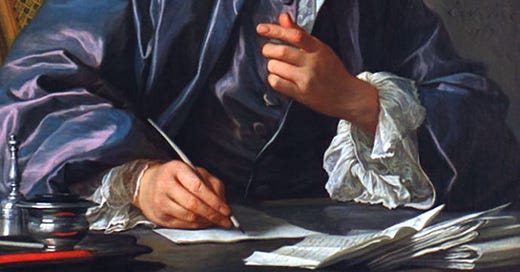Is our misery (and anxiety) our own making?
The Diderot Effect, The Hedonic Treadmill and The Gap and The Gain
Is our misery (and anxiety) our own making? If we wanted to, could we shift it all tomorrow? Or how about, better yet, today?
I’ve been on a rabbit trail of learning, and I’m blown away by what I discovered about how I see life.
It all started with a book I randomly picked up at the library, The Hygge Home by Meik Wiking. It was a book I thought I’d thumb through, but I read every page and learned way more than I expected from this seemingly simple book on crafting a cozy home.
Wiking introduced me to the Diderot Effect.
Although it sounds like some fancy science term, the abbreviated story goes like this: A poor guy sells his books to the queen of the land and, with his newfound wealth, purchases a new robe. He suddenly becomes dissatisfied with all his things because when you bring a sparkling new robe in, everything looks terrible in comparison. He goes broke and writes and essay to tell about it.
Wikipedia (I can’t believe I’m quoting Wikipedia either) says “The Diderot effect is a phenomenon that occurs when acquiring a new possession leads to a spiral of consumption that results in the acquisition of even more possessions.”
Haven’t we all been here before? We buy a few new pieces for our wardrobe and suddenly, we need an overhaul to fit what all the Like To Know It gals are sharing. Converse out. Sambas in. Or when you buy a new couch you instantly notice how dirty your rug is. So now, instead of delighting every time you sit on that brand new couch that you saved two years for, you feel discontent every time you look because you can’t help but see that dirty old rug underneath it. Hypothetically speaking of course. I would never!
Last week, we talked about the idea of moral laziness and not making decisions that inevitably lead to busyness. This week, we’re kind of hitting on how that looks with material things and beyond (keep reading). Suffice it to say, I think it’s all making us miserable, but the good news is, we don’t have to live like this.
In one sense, the Diderot effect is about making everything important. It’s no longer just a dressing gown. Everything needs to measure up to it.
In the words of Michael Scott, “I mark my memos Urgent A, Urgent B, Urgent C, and Urgent D. Urgent A is the highest. Urgent D, you don’t even really have to worry about.”
Making everything important is a recipe for not only confusion but stress, too.
I used to be a wedding planner and still remember one of my toughest weddings.





